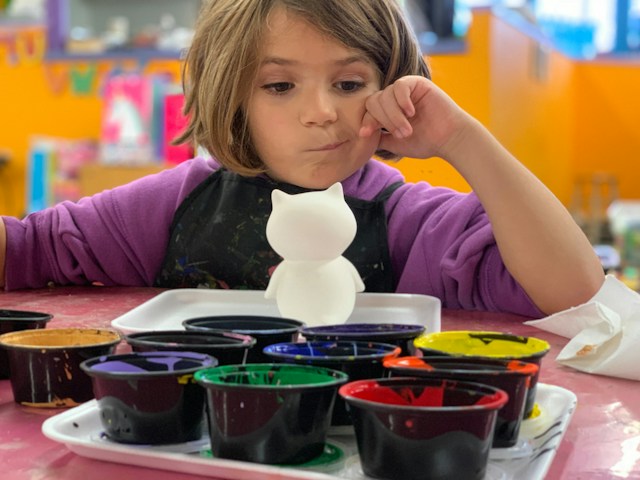Teach by example even if you are less than perfect

Children may or may not do as you say but they are very likely to do as you do. You are more than your child’s first teacher. You are your child’s most important role model. Your child sees potential through your eyes, creates connections through your hands, and discovers opportunity through your choices. You are the filter through which your child learns self worth, how to get along with others, and how to make a difference in the world.
Should you be perfect? Absolutely not, role models don’t pretend to be something they aren’t. Role models do, however, understand that someone impressionable is watching, listening and learning from their example.
Oops Moments
Have you ever been caught gossiping about a friend, swearing in traffic, cavalierly ignoring rules, or fibbing your way out of a playdate? Children remind us to take a second look at less-than-ideal behavior among adults. Even Robin Williams was called into the principal’s office when his son told one of daddy’s jokes to his elementary classmates. Should you give up your identity now that you’re a parent? Not necessarily, just be aware of what you’re teaching.
If you’re okay with colorful language, teach appropriate context. If you believe “white lies” are sometimes justified, teach the difference between public and private information. But, if there’s a negative message behind your accidental slip-ups – rudeness, hypocrisy or hostility, you might need to give yourself a timeout.
Emotional Skills
Your child’s “emotional intelligence” is directly related to the emotional environment at home. Researchers believe that parents who act as “emotion coaches” raise children who are most likely to succeed as adults. In order to be an effective emotion role model:
• Parents want to express their own emotions with maturity especially uncomfortable emotions like anger, frustration, disappointment, and stress.
• Parents want to learn which situations push their buttons to prevent highly reactive outbursts.
• Parents want to help children through challenging emotions rather than rescue them from them.
• Parents want to follow The Twenty-four-Karat Golden Rule, from the book Emotionally Intelligent Parenting: Do unto your children as you would have other people do unto your children.
A foundation in emotional literacy gives your child the ability to handle obstacles and successes to reach her fullest potential.
Problem-Solving Skills
Interestingly, children not only need to see their parents doing the right things; they also need to hear why parents make the choices they do. As one researcher said, “We need to practice what we preach…and preach what we practice”. Parents teach problem solving skills every time they explain the values behind everyday actions:
• Children learn how to interact with siblings and friends by watching parents interact with one another
• Children learn kindness and empathy when parents put other people needs ahead of their own
• Children learn the difference between needs and wants when parents decipher media messages with their children
• Children learn that mistakes are opportunities to do better when parents value effort over convenience
Teachable moments are often the lessons that happen in between planned experiences. Your experience and wisdom is the bridge that takes your child from childhood to maturity.
Life Style
What’s in your refrigerator? How do you reward yourself for a job well done? How well do you take care of yourself – sleep, exercise, fun? The habits you set for health, diet, exercise, smoking, or drinking are regularly passed on from one generation to the next. Take a minute to evaluate the choices you make for yourself, both deliberate and unconscious. They are the choices you make for your child’s future as well.
Attitude and Aptitude
Of course, parents can’t control exactly how their children will grow. But the old cliché, “an apple doesn’t fall far from the tree”, holds enough truth to be repeated for over 400 years. Your attitude and your interests shape your child’s experience for years to come. Will your child see resilience and joy? Will your child be inspired by parents who are readers, adventurers or philanthropists? Or, will she hear one message and see another?
What do you stand for? Embrace your crazy, quirky personality. Celebrate your strengths and your flaws, interests and talents, hopes and values. Live as if someone is watching…because they are.





Follow Us
Join the conversion. Make sure to follow us on our social platforms for the latest content and FamilyTime news.